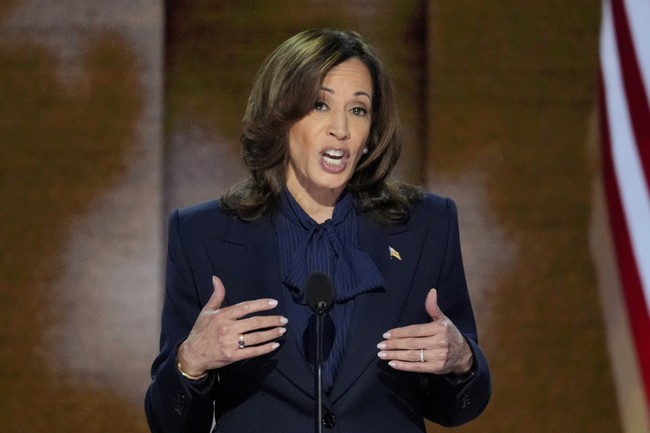Israeli Authorities Ban Al-Aqsa Preacher for 6 Months
The controversial move has sparked debate over its legality and underlying motives, touching on sensitive issues of religious and political freedom.
Published August 09, 2024 - 00:08am
Image recovered from assawsana.com
In a series of recent events, the Israeli police have decided to ban Sheikh Ikrima Sabri, the preacher of Al-Aqsa Mosque, from entering the mosque and its courtyards for six months. This decision follows his Friday sermon, where he commemorated Ismail Haniyeh, the political leader of Hamas, who was killed in Tehran in a strike attributed to Israel.
Sheikh Ikrima Sabri, who is also the head of the Islamic Council in Jerusalem, was detained by Israeli forces on Friday evening at his residence in the Al-Suwwaneh neighborhood of Jerusalem. Video footage circulating online shows Israeli police and occupation soldiers surrounding Sheikh Sabri as he leaned on his cane, heading towards a police vehicle.
Attorney Khaled Zbarqa, a member of the defense team for Sheikh Sabri, announced that the decision to ban Sheikh Sabri from Al-Aqsa Mosque was an administrative ruling issued by the Jerusalem police without any judicial proceedings. Zbarqa argues that the Israeli police lack the authority to impose such a ban, emphasizing that Al-Aqsa Mosque is a place of worship and Sheikh Ikrima is one of its preachers.
According to a statement released by the Israeli police, an investigation was opened against Sheikh Sabri following his Friday sermon, on accusations of 'incitement and support for Ismail Haniyeh.' This investigation led to an administrative order signed by the acting commander of the Jerusalem District, extending Sheikh Sabri's ban from the mosque until February 2025.
The decision to ban Sheikh Sabri was met with a swift backlash. His attorney, Zbarqa, described the ban as a politically motivated act driven by pressure from extremist Jewish groups. He emphasized that the order to remove Sheikh Sabri from Al-Aqsa Mosque is not legally substantiated and lacks any valid legal grounds under Israeli law. Furthermore, Zbarqa declared that there would be no attempt to contest the decision in Israeli courts, citing a national and religious resolution to refrain from recognizing the jurisdiction of an occupying authority over the mosque.
The ban has drawn widespread condemnation and raised important questions about religious rights and freedoms in Jerusalem. Multiple sources indicate that Sheikh Ikrima Sabri has been subjected to similar accusations of incitement in the past, leading to several instances of his removal from Al-Aqsa Mosque under similar pretexts.
This development comes at a time when tensions between Israeli authorities and Palestinian religious figures in Jerusalem are particularly high. Sheikh Sabri's remarks during his sermon have been interpreted by the Israeli authorities as supportive of a Hamas leader, intensifying an already fraught situation. His arrest and subsequent release, accompanied by an initial one-week ban from the mosque, were part of a sequence of events that culminated in the six-month extension of the ban.
Attorney Hamza Qiteineh, who represents Sheikh Sabri, underscored that the arrest followed a siege of Sheikh Sabri's home during a session on the decision to revoke his residency status in Jerusalem. The timing and nature of these decisions have added to the controversy, as they are perceived to stem from political pressures and an agenda promoting surveillance and control over key religious figures within the Palestinian community.
Moreover, statements made by Israeli officials, including the Minister of Internal Affairs, Moshe Arbel, further complicate the issue. Arbel has expressed intentions to revoke Sheikh Sabri's residency permit in Jerusalem, a move that many interpret as an attempt to weaken Palestinian religious leadership and undermine their influence in the city.
The broader context of these actions intersects with longstanding tensions surrounding the status of Jerusalem and its holy sites. Al-Aqsa Mosque, a site of immense religious significance to Muslims worldwide, remains a highly sensitive focal point in the Israeli-Palestinian conflict. The ongoing restrictions and administrative orders targeting key figures like Sheikh Sabri reflect deeper issues of power and control over sacred spaces, questioning the stability of religious freedoms under occupation.
With no clear resolution in sight, the situation continues to attract significant attention from international human rights organizations, legal experts, and scholars of Middle Eastern politics. The argument that Israeli authorities lack jurisdiction over decisions impacting religious practices within the mosque presents a contentious legal battleground: while Israeli law confers certain administrative powers to local authorities, international perspectives on the status of Jerusalem create a layered and conflicting legal framework.
Rustam Einhome, a representative from an international human rights organization, stated that the continued targeting of religious leaders like Sheikh Sabri through administrative bans and potential revocations of residency permits forms part of a systematic pattern aimed at suppressing dissent and consolidating control. This view aligns with broader critiques that frame these actions within the historical context of occupation and conflict.
Meanwhile, protests and calls for action have sprouted within local and international communities, urging for solidarity with Sheikh Sabri and the broader Palestinian cause. The question of effective responses amidst such challenges remains pressing, given the apparent unwillingness of Israeli authorities to reverse their stance. Grassroots mobilization and international advocacy efforts are seen as critical to raising awareness and exerting pressure on the Israeli government to address these contentious actions.
As the situation unfolds, the implications of Sheikh Sabri's six-month ban from Al-Aqsa Mosque resonate deeply not only within the immediate context of Jerusalem but also in the broader geopolitical landscape. Observers continue to monitor developments closely, recognizing that decisions impacting religious freedoms and leadership within Jerusalem hold significant sway over the dynamics of Israeli-Palestinian relations.







